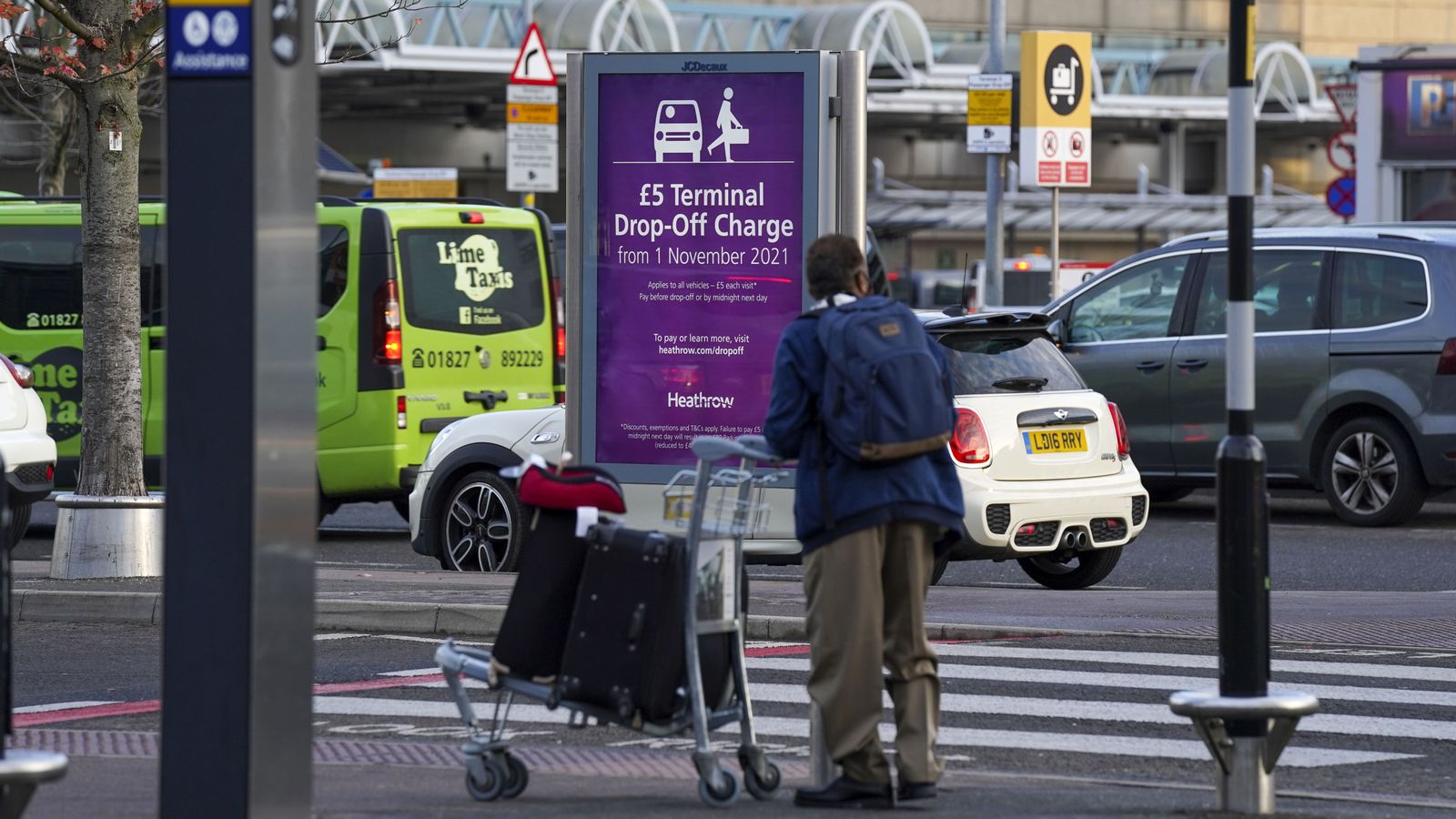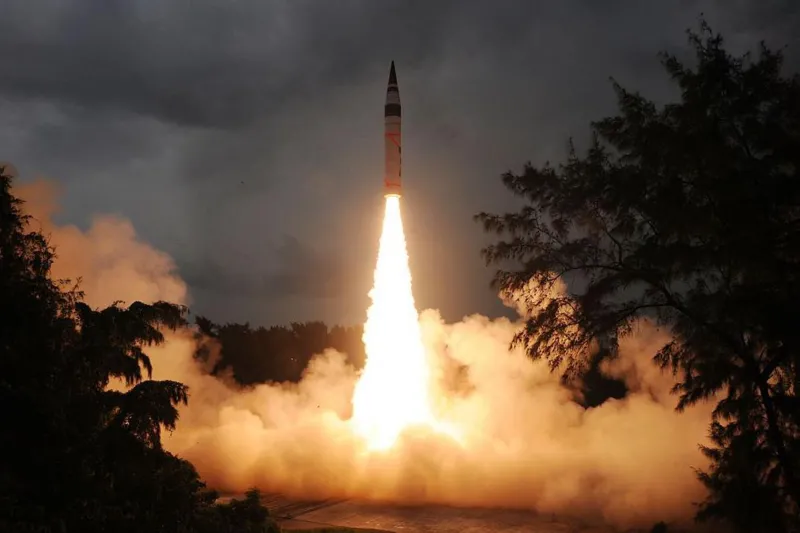Trade war latest: China hits back in minutes against Trump's tariffs - and takes aim at Google
The world's biggest two economies have exchanged trade war blows this morning - at 5am Donald Trump imposed tariffs on Chinese imports and within minutes China hit back with levies of its own.
China tells US 'we don't need to fight each other'
China's permanent representative to the United Nations has issued a warning to the US over a trade war.
"The world is entering a very turbulent period," Fu Cong said.
"So as the two biggest countries, we don't need to fight each other."
It comes as Beijing hit back with tariffs of its own on Washington, minutes after US tariffs came into effect in China (see our 6.21am post).
"I do hope that despite all the rhetoric that we have heard from the American politicians, we can take a constructive and I will emphasise a professional approach to our work here in the United Nations and so much is at stake," he added.
Why did the US pause tariffs on Canada?
Last night, we brought you the news that the US had agreed to pause its tariffs on Canada for 30 days.
It follows a similar agreement between the US and Mexico which was announced earlier in the day.
But why has Donald Trump decided to pause tariffs the day before they were due to be implemented?
Guinness maker scraps sales target over tariff uncertainty
The maker of Guinness has scrapped a key sales target as it grapples with uncertainty over US tariffs.
Spirit giant Diageo said it is talking with the US government over upcoming tariff policies that could "impact" its sales recovery.
It said impending levies on Mexico and Canada - delayed for a month - "adds further complexity" to its ability to predict future trading.
Its tequila and Canadian whisky brands are expected to be particularly affected, Diageo said.
The London-based company revealed net sales dipped by 0.6% to £8.8bn in the last six months of 2024 due to "unfavourable" currency exchange rates.
But in the UK, the group's sales grew 2% due to soaring demand for Guinness, despite British pubs reporting shortages over the Christmas period.
Very tough for UK to evade Trump's trade bullseye for long, says former ambassador
The UK is "out of the bullseye" so far but avoiding Trump's trade ire is "a very tough line to walk", says a former US ambassador to the EU.
Anthony Gardner said Britain is more exposed since leaving the EU, having less power to retaliate and therefore less power of deterrence.
"Trump will probably want the UK to do things that it may not want to do," Gardner told Sky News chief presenter Kay Burley.
This includes moving closer to US regulatory standards, he said.
"So far it looks like the UK has a better case to make to Donald Trump because it is unclear whether the UK runs a surplus or a deficit."
But it will be "very tough long term to pull this one off".
He said Trump "honestly believes that tariffs are the right answer to almost every problem" - but he's mistaken.
Tariffs are a regressive tax on consumption, hurting those that are least well off, said Gardner.
It will make the US less competitive and lead to more inflation and lower growth over time, he said.
"The idea that tariffs are this wonder drug that can do everything is misplaced."
How news of Chinese tariffs hit markets
China's tariff retaliation has already affected Asian stock markets as news of the levies broke during trading hours. There was already a lot for investors to digest through Asian trading as the trade war trundled on.
Trump was going ahead with 10% tariffs on China, having paused his taxes on Mexican and Canadian imports.
The pause was welcomed by stock markets in Japan, Korea, Hong Kong and Australia, some of whom came close to recovering Monday losses.
Then came the news of China's retaliation - and those recoveries were dented.
At the end of trading for Korea and Japan their stock markets were up but not enough to recoup yesterday's losses. Korea's benchmark, the Kospi, was up 1.13% and Japan's Nikkei gained 0.72%. Both are export economies and can be affected by a global trade war.
Hong Kong's Hang Seng index, containing Chinese companies, can give us a sense of how the Chinese market may be affected - it gained 2.5%. Chinese markets remain closed for Lunar New Year.
China is Australia's biggest trading partner and on the news of Chinese tariff retaliation, the S&P/ASX 200 index lost all its gains and closed down 0.06%.
What is China's 'unreliable entity' list?
Among China's trade moves against the US, it has added Calvin Klein's owner and a US biotech company to its unreliable entity list.
China's commerce ministry said PVH Corp, the holding company for brands including Calvin Klein and Tommy Hilfiger, and Illumina have taken "discriminatory measures against Chinese enterprises".
Companies on the blacklist can be subject to fines and a broad range of other sanctions.
This includes a freeze on trade and revocation of work permits for foreign staff.
Chinese law says firms can be added to the list if they endanger China's sovereignty, national security, or development interests, suspend normal transactions or apply discriminatory measures against Chinese enterprises.
PVH had already been under scrutiny from Chinese regulators over what they called "improper" conduct related to the Xinjiang region.
From laptops to phones, China has a stranglehold on tech components - and it won't take trade war lying down
China has one message to send the US this morning after imposing retaliatory tariffs - that they won't take Trump's trade war "lying down", says Asia correspondent Nicole Johnston in Nansha Port, Guangzhou.
"Up until this point, they had been relatively restrained in the language that they had used towards the US, now they're getting stronger," she says.
"They've said that it is in bad nature, that it is trade protectionism and unilateralism."
There are still a few days until the Chinese tariffs take effect on 10 February, before which there could be "an intervention, or a grand deal or a temporary reprieve", adds Johnston.
If not, China's commerce ministry said the country would impose export controls on tungsten, tellurium, ruthenium, molybdenum and ruthenium-related items.
"This is something that China has done before," Johnston says.
"It has a real grip on these critical minerals, which are essential for producing things like mobile phones and laptops, something that the entire world needs."
China's threat of a 15% levy on liquified natural gas "probably won't have an immediate effect" because the product is normally sold on long-term contracts.
"What this is all about is really the message that China is trying to deliver to the US - and it is clear," Johnston says.
"China is saying it is not going to take this 10% tariff that Donald Trump has imposed on China lying down."
China launches investigation into Google - and sanctions two other US firms
Alongside its tariffs on the US, China has launched an anti-monopoly investigation into Google.
The country's state market regulator did not offer any further details on the probe or on what it alleged Google had done to breach the law.
Google products such as its search engine are blocked in China, but it works with local companies like advertisers.
China also added two US firms to its "unreliable entity list": PVH Corp, the holding company for brands including Calvin Klein, and biotechnology firm Illumina.
Its commerce ministry said the two companies took what it called "discriminatory measures against Chinese enterprises" and "damaged" the legitimate rights and interests of Chinese companies.
China hits back minutes after Trump tariffs come into effect
The world's top two economies have exchanged trade war blows this morning.
Donald Trump imposed an additional 10% tariff on all Chinese imports at 5am.
Within minutes, China retaliated with an announcement of 15% tariffs on US coal and liquified natural gas, and 10% on crude oil, farm equipment and some vehicles.
The new tariffs will start on 10 February, China's commerce ministry said.
"The trade war is in the early stages so the likelihood of further tariffs is high," Oxford Economics said in a note as it downgraded its China economic growth forecast.
China's commerce ministry said the country would also impose export controls on tungsten, tellurium, ruthenium, molybdenum and ruthenium-related items to "safeguard national security interests".
Trump warned he might increase tariffs on China further unless Beijing stemmed the flow of fentanyl, a deadly opioid, into the US.
"China hopefully is going to stop sending us fentanyl, and if they're not, the tariffs are going to go substantially higher," he said yesterday.
China has called fentanyl America's problem and said it would challenge the tariffs at the World Trade Organization and take other countermeasures, but also left the door open for talks.
A White House spokesperson said Trump would not be speaking with Chinese President Xi Jinping until later in the week.
Trump says he wants Ukraine to supply US with rare earths
Donald Trump says he wants to secure access to Ukraine's supply of rare earth minerals in exchange for financially supporting the country's war efforts against Russia.
Speaking at the White House, Trump said he was looking to do a deal with Kyiv "where they're going to secure what we're giving them with their rare earths and other things".
He told reporters that Ukraine's government had signalled openness to the idea of exchanging its supplies of lithium, titanium and other rare earth minerals for continued American aid.
Trump also complained that Europe had not provided Ukraine the same level of aid as the US.
"We have an ocean in between. They don't. It's more important for them than it is for us," he said.
Why Trump has threatened to cut off all future funding to South Africa
As the geographical spread of US President Donald Trump's pronouncements increases, so do the furrowed worry lines of leaders worldwide.
Day 14 of the Trump presidency brought threats of a global trade war and news of the likely demise of USAID - the US international aid and development agency.
But the 78-year-old also spent his time complaining that "South Africa is confiscating land" and "certain classes of People" were being treated "VERY BADLY" in a post on his Truth Social website.
He threatened to cut off all future funding to the country until a full investigation is carried out - so, what is actually going on?
Trump's tariffs take aim at fentanyl - a drug blamed for 70,000 overdose deaths on US streets
Part of Donald Trump's trade war is rooted in the US president's desire to get fentanyl off American streets.
The opioid is blamed for some 70,000 overdose deaths annually across the country, with criminal networks stretching back to China, Mexico and beyond blamed for pushing the drug into the US illegally.
Detecting the drug is extremely challenging for law enforcement due to its lack of odour and the small amounts it's shipped in - fentanyl is 50 times more potent than heroin.
But Trump is hoping that by slapping trade tariffs on the countries fentanyl is coming from, it will help stop the flow.
He's already seeing results.
After announcing 25% tariffs on Mexico, its president today announced she was sending 10,000 soldiers to the US border to battle drug-trafficking as part of a deal with Trump to pause tariffs for a month (see 15.35 post).
Canada has also received a 30-day pause after making similar promises, despite US customs seizing 99.98% more fentanyl from its border with Mexico than its border with Canada during the last fiscal year.
-SKY NEWS







